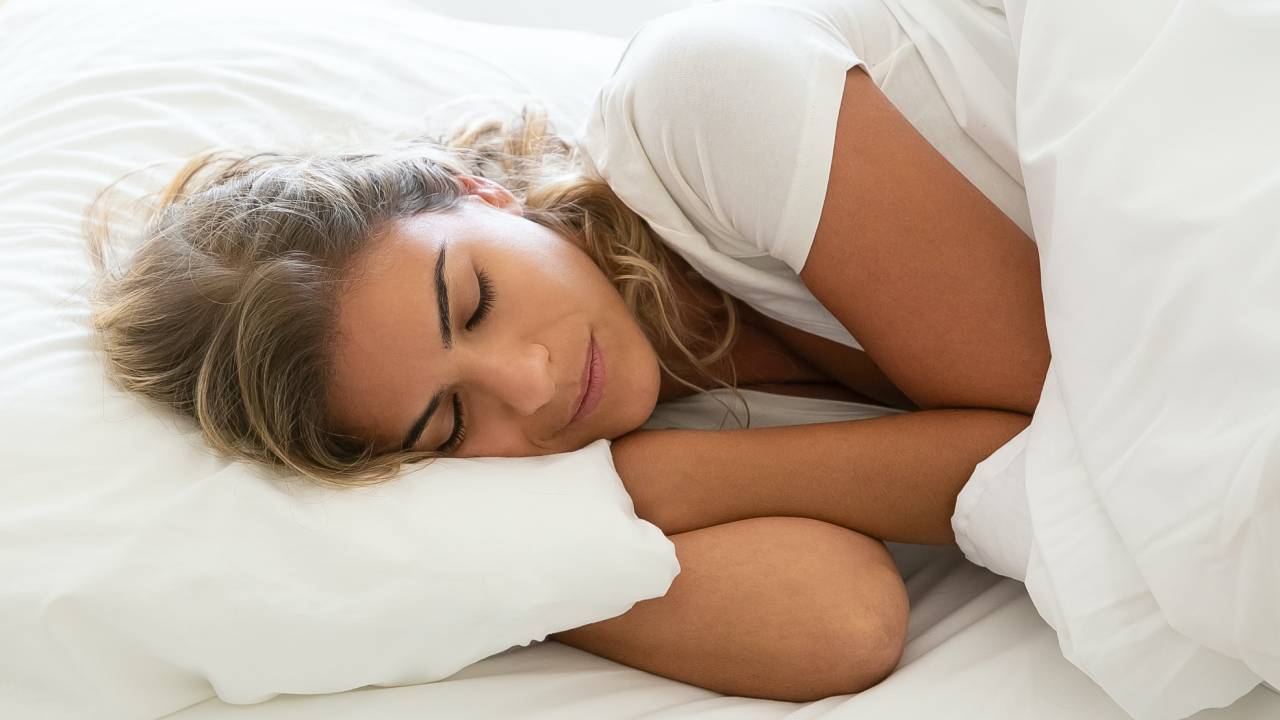I found my sleep language and here's how you can find yours
The 5 sleep languages explained by a clinical sleep psychologist


Get all the latest news, reviews, deals and buying guides on gorgeous tech, home and active products from the T3 experts
You are now subscribed
Your newsletter sign-up was successful
Sleep is incredibly important for your physical and mental wellbeing, but at times, it can seem elusive and just out of reach. A key way to getting a better night’s rest is to recognise and understand your sleep patterns to ensure you’re getting quality sleep night after night.
If you’re struggling to sleep, even with the best mattress at your disposal, you might not be understanding your sleep language. According to clinical sleep psychologist, Dr Shelby Harris in collaboration with Calm, there are 5 languages of sleep that people fall into.
After years working with patients with sleep difficulties, Dr Harris found that “being able to identify which (or a combination of) categories you fall into will help you know where to focus your efforts to improve your sleep.” After hearing about sleep languages, I decided to find mine and make the changes that Dr Harris suggests to better my sleep patterns… and the results were amazing.
Here’s what happened when I found my sleep language, and how you can find yours.
What are the 5 languages of sleep?
Dr Harris frequently sees people fall into 5 sleep categories or languages: The Gifted Sleeper, The Words of Worry Sleeper, The Routine Perfectionist Sleeper, the Too Hot to Handle Sleeper and the Light As A Feather Sleeper. Let’s quickly look at what each sleep language is and how to find out if they apply to you.
The Gifted Sleeper is someone who has the ability to fall asleep easily and in any situation. This type of sleeper can fall asleep almost instantly as soon as their head hits the best pillow and they’re also good at napping during the day.
The Words of Worry Sleeper is someone who is kept awake at night due to anxious thoughts and their brain keeping them awake with ‘what ifs’. If you’re this type of sleeper, you might find that you have trouble switching off at night or being woken up in the middle of the night with random thoughts and worries.
Get all the latest news, reviews, deals and buying guides on gorgeous tech, home and active products from the T3 experts
The Routine Perfectionist Sleeper is someone rigid in their behaviours and situations surrounding sleep, mainly their nighttime routine. If a routine isn’t followed at night or something happens outside of their schedule, this type of sleeper might worry about how this will impact their sleep and this anxiety can keep them up at night.
The Too Hot To Handle Sleeper is someone who finds it hard to sleep or wakes up during the night feeling too hot. Dr Harris states that this sleep language is most common in women, especially those experiencing menopause, and this type of sleeper will tend to wake up feeling sweaty and uncomfortable.
Finally, the Light As A Feather Sleeper is someone who finds their sleep isn’t deep enough for them to feel well rested, despite having slept through the night. This type of sleeper might wake up feeling drained and this can be attributed to many reasons, like sleep disorders or medications.

What happened when I found my sleep language
As soon as I found out about sleep languages, I knew I had to find out what mine is. In general, I sleep pretty deeply and don’t have too many issues through the night, but after reading through Dr Harris’ sleep languages, I realised that I’m a Words of Worry Sleeper.
To find this out, I answered all the questions that Dr Harris poses for each sleep language. For the Words of Worry Sleeper, Dr Harris suggests asking yourself: “Do you have trouble turning off your brain at night”, “Do you worry about whether or not you’ll get a good night’s sleep” and “Do you struggle with tension in your body when it’s time to sleep”.
After answering yes to the above questions, I started to realise that the main part of the night that I struggle with is falling asleep because my brain won’t be quiet. Compared to my fiancé who is a textbook Gifted Sleeper, I spend almost triple the time to fall asleep than he does!
Once I found my sleep language, I followed Dr Harris’ tips for creating my ideal Words of Worry Sleeper sleep situation. To relax my brain and body, Dr Harris suggested having a strong wind-down routine, keeping my bedroom as quiet and comfortable as possible, and trying the best essential oils to calm my brain and encourage sleep.
For a week, I practiced winding down 30 - 60 minutes before bed by minimising screen time, using dim lights, meditating and reading. I started to notice that I fell asleep much quicker than before and if I spent this wind-down time using my phone, I was up for longer and my brain took longer to shut off. Overall, I was extremely happy with my results after finding my sleep language and think all types of sleepers will benefit from understanding and catering to theirs.

Beth is Home Editor for T3, looking after style, living and wellness. From the comfiest mattresses to strange things you can cook in an air fryer, Beth covers sleep, smart home, coffee machines, watches, grooming tools, fragrances, gardening and more.
In her spare time, Beth enjoys running, reading, baking and attempting craft projects that will probably end in disaster!